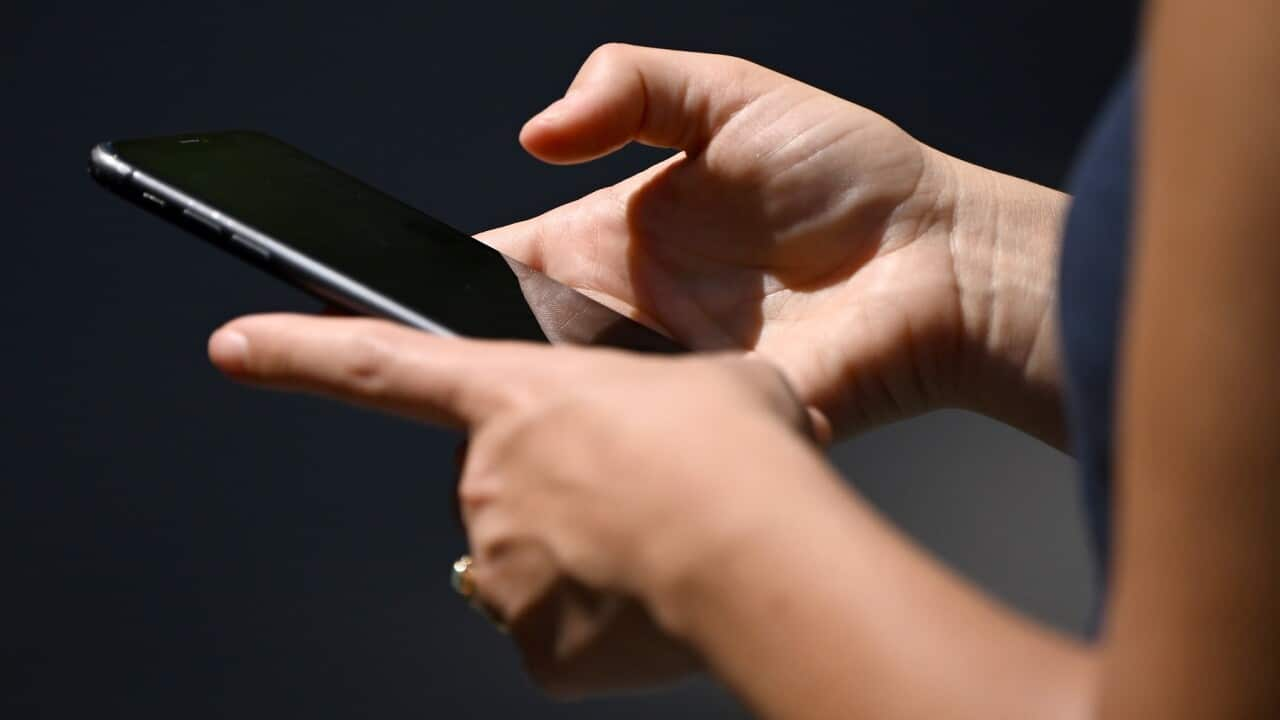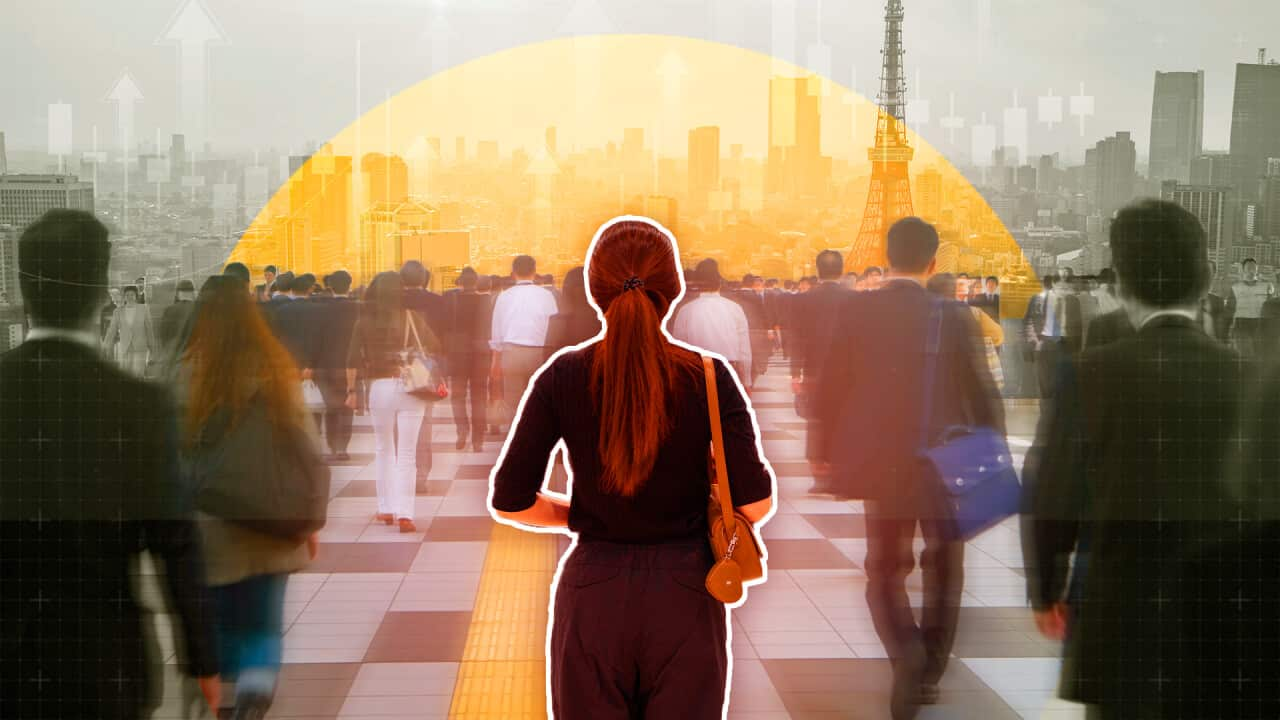Listen to Australian and world news, and follow trending topics with SBS News Podcasts.
TRANSCRIPT
For many of us, our lives increasingly involve looking at digital screens, for work and for play.
Professor Laura Downie, from the University of Melbourne, says that's had an impact.
"It is known that people who undertake more intensive or expended periods of computer use - usually considered about four hours a day or more - are more likely to experience eye strain symptoms. And so those types of symptoms can include tired eyes, burning eyes, or just discomfort."
Blue light has been blamed for much of the increase in cases of eye strain.
Dr Sumeer Singh, also from the University of Melbourne, says sales of glasses to block that blue light have boomed - especially during the height of the COVID pandemic.
"Because of the increase in the prevalence of digital eye strain, there has been a lot going around from media advertisements or from the optical industry and things. And what's been happening is because of these promotions, people tend to buy these products."
Blue-blocking lenses for prescription glasses have a special coating designed to reduce the amount of blue light passing through the lens, and thus into the eye.
But questions have been raised about how effective these really are.
Dr Singh is part of a team that's just compared standard clear lenses with blue light blockers, to see if the blocker lenses were more effective.
He says they're not.
"We conducted a double-masked randomised clinical trial. So double-masked both the study investigator and the study participants who participated in this trial were not aware of which interventions the participants received... And what we found is that blue light blocking lenses did not reduce eye strain compared to the standard clear lenses."
Professor Downie says the study's results are in line with other research across the world that's come to the same conclusion.
And she says the jury is still out on the other major purported benefit - helping people to sleep.
For the Professor, blue blocker glasses don't do any real harm, but she says there are other things people can do to effectively avoid straining their eyes.
"We would recommend that they discuss those symptoms with their eye care professional, such as an optometrist... A person might require glasses... and it might actually be that factor that is driving their eye strain... Modifying the frequency or duration of digital device use, enhancing the working environment, ensuring the ergonomic setup is suitable; all those factors are important for reducing the likelihood of experiencing visual fatigue with digital devices."













